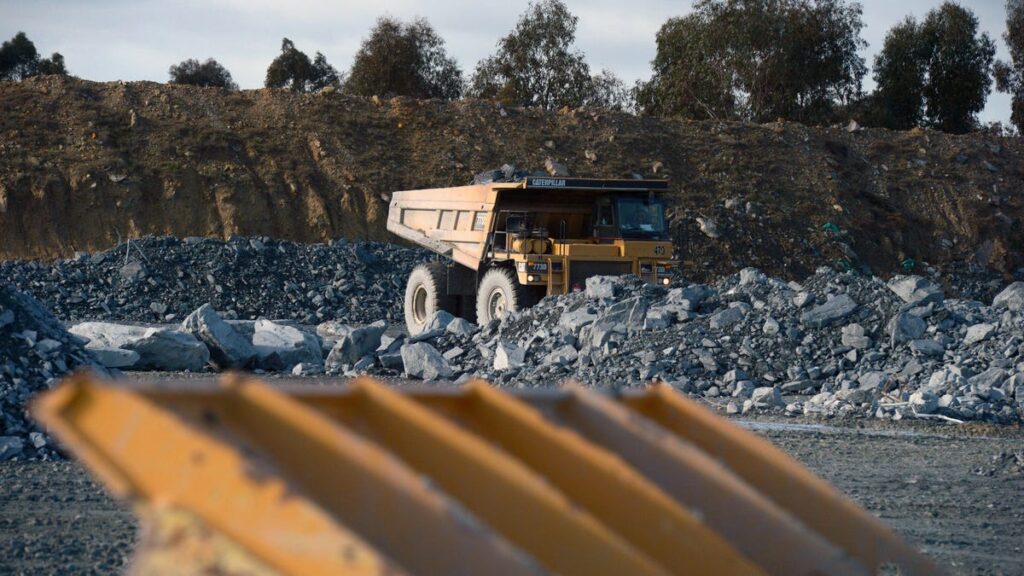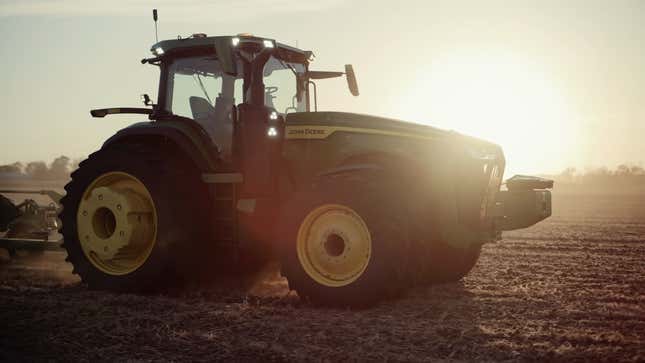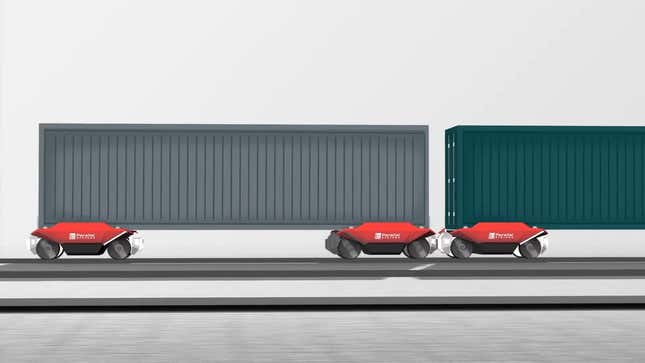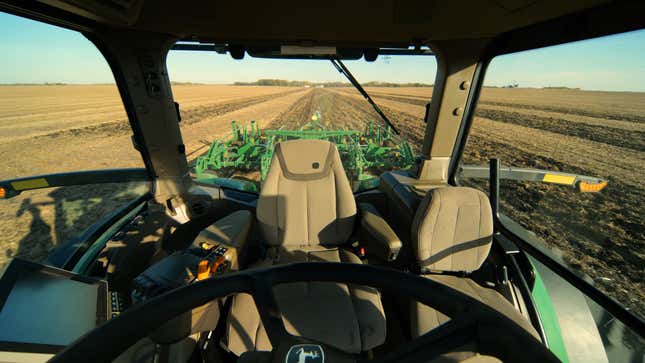Self-Driving Trucks, Tractors and Trains Are Touted as the Solution to Worker Shortages in the U.S.

Photo: Carla Gottgens (Getty Images)
A lack of truck drivers and skilled machine operators is encouraging the development of autonomous vehicles across a number of industries from construction to farming to heavy industry and freight rail, according to Axios.
Forget Autonomy, Drivers Still Want Control
In case you missed it:
Putting aside the ostensible “lack” of such workers — which we’ve covered before at length, and found workers to not really be “missing” so much as severely underpaid — it’s worth following the development of these new technologies because they have a greater chance of taking off within the next few years than the wide-scale use of autonomous vehicles on public roads.
As Axios reports, Caterpillar is due to start using self-driving trucks in a Virginia quarry as soon as next year, although the company’s efforts with commercial AVs (in actual use in the field) have been ongoing for a decade or longer. These efforts will culminate in 2024 with the deployment of its latest robotrucks in Luck Stone’s Bull Run Plant in Chantilly, Virginia. Caterpillar’s autonomous vehicles in the quarry will haul rocks, gravel and sand; they join CAT’s budding fleet of 600 robotrucks already in use worldwide.

Moving on to the farming sector in the U.S. — or Big Ag — John Deere (of Deere and Co.) has been developing AVs, or robotractors, to help American “growers coping with a shortage of farmhands.” Deere’s fancy new tractors could work alongside older tractors that are being retrofitted for autonomous use by SafeAI and Teleo. The CEO of SafeAI says its commercial autonomous tech is “hitting a tipping point for adoption at scale,” per Axios.
One of the more interesting bits from a previous report mentions that farmers are getting older: In the U.S., their average age is now 55 years old. That report goes on to say that 80 percent of Americans are now living in urban areas, and that means these aging farmers are not being relieved by younger generations.

Finally, Parallel Systems is working on AV tech for rail cars that will reportedly eliminate the need for a central locomotive, breaking down rail deliveries into smaller platoons of 10 to 15 robocars that will drive themselves along major railway routes about 500 miles long, then hand off cargo to truck drivers for last-mile deliveries. This commercial transportation model will allegedly “help decarbonize freight” and also aid with the truck driver shortage by putting available truckers where they are needed.
Of course, all of this tech has been hinted at for years (or decades, in some cases), but the difference between commercial AVs and autonomous vehicles meant for use by motorists on public roads is mainly that robotrucks, robotractors and robotrains will be used on a relatively smaller scale. That smaller sandbox and the U.S.’s “shortage” of truckers is now accelerating the development of these autonomous vehicles.







